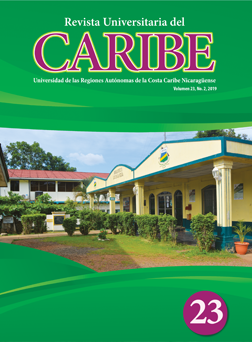From Conventional Higher Education to Intercultural Higher Education
DOI:
https://doi.org/10.5377/ruc.v23i2.8931Keywords:
Afro-descendants, Law, Education, Indigenous, Interculturality, People, UniversityAbstract
In recent decades, when referring to higher education for indigenous and Afro-descendant peoples, thinking about access to the tertiary education system tends to be reduced, that is to say: inclusion or quotas in synonym of representativeness, in accordance with this approach it can be affirmed that, the first intentions to provide a higher education to these historically marginalized populations were developed through inclusive actions within higher education institutions that are called conventional; However, with the passage of time the demands of indigenous populations are mainly exercised with greater rigor in terms of being able to have their own educational system, which responds to the standards of quality and relevance established by the same peoples and communities, there the emergence and transition from a conventional higher education to an intercultural higher education. This essay presents a bibliographic review on the topic Higher Education in Latin America and focuses on the experience of Nicaragua. The issue of interculturality in tertiary education is mainly addressed, and particularly some directions that universities or institutions of intercultural community character should or are taking. The approaches are intended to clearly establish the impact that intercultural community universities have had, by setting the issue of interculturality on the agenda, and even more so that positions are adopted to facilitate interculturalization of higher education as a topic of discussion, of reflection and concrete rethinking for acting in educational systems
Downloads
710
HTML (Español (España)) 253
EPUB (Español (España)) 254
Resumen (Audio) (Español (España)) 230
Abstract (Audio) 206
Downloads
Published
How to Cite
Issue
Section
License
Propietario de los derechos de autor de los artículos: Los autores guardan los derechos de autor.

Esta revista está bajo una licencia de Creative Commons Reconocimiento-NoComercial-SinObraDerivada 4.0 Internacional. Esta licencia permite que otros puedan descargar las obras y compartirlas con otras personas, siempre que se reconozca su autoría, pero no se pueden cambiar de ninguna manera ni se pueden utilizar comercialmente.

